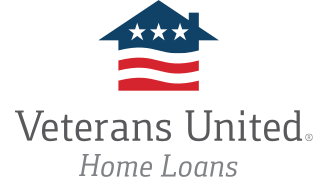How to Get a VA Loan When Self-Employed
Here's a look at the requirements and qualifications for self-employed veterans interested in a VA loan.
Self-employment is a growing trend, and more people than ever before are embracing the flexibility and freedom it offers. But how does self-employment affect VA loan qualification for Veterans? If you are self-employed and want to use your VA entitlement for a VA loan, you may have to follow a slightly different mortgage approval process.
Here's what you need to know when applying for a VA loan as a self-employed individual.
Can I Get a VA Loan if I’m Self-Employed?
It is possible for self-employed Veterans to get a VA home loan, but it may be difficult to do so with less than two years of experience. Self-employed Veterans will need to provide additional paperwork during the application process. Most lenders are looking for a two-year history of reliable, steady and sufficient income that can be verified by a 1099 form and tax returns. A 1099 tax form is similar to a W-2 in that it is used by the IRS to verify income paid to freelancers and independent contractors.
What Is Considered Self-Employment?
Self-employment comes in many forms, such as owning your own business, freelancing, consulting and temporary work. It's a broad term that covers work you are paid for, but are not hired for as a full-time W-2 employee.
One way to differentiate is that traditional employees are eligible for benefits and legal protections, while self-employed contractors are not. Even babysitting can count as self-employment if you have the right paperwork and claim all your income on your taxes at the end of the year.
According to VA self-employment guidelines, the following are considered to be valid forms of self-employment:
- Full ownership of a business (i.e., you are a sole proprietor)
- At least 25% ownership of a joint business
- Freelance/contract worker with all or mostly 1099 income
Each VA lender has different requirements, so be sure to check with the lender directly about what they consider to be valid, verifiable self-employment.
VA Loan Self-Employed Guidelines
All Veterans, including those who are self-employed, must still meet the standard criteria to qualify for a VA loan. For example, you will first need to provide your Certificate of Eligibility (COE) detailing your service history and duty status.
In addition to proving you have a reliable income, you must also have a reasonable debt-to-income ratio, or DTI. VA lenders look for a DTI of no more than 41%. These debts could include a car loan, student loans or credit card debt.
You'll also need to meet your lender's minimum credit score requirement. Although the VA doesn’t set a minimum credit score, VA lenders usually want to see a credit score of at least 620. This number can vary, so check with your lender directly.
Working for a Family Business and VA Loans
When working for a family member or at a family-owned business, VA lenders want to ensure you have reliable income. While some VA lenders only require a year of employment with a family business, most lenders still will need to see two years of income tax returns. It is also common for a third party to confirm this information for the lender.
Verifying Self-Employed Income
The key to verifying self-employed income is making sure all your earnings are properly documented and submitted to the IRS. This means cash payments that are not documented will not count as effective income on a VA loan.
In general, VA lenders will need proof of your income from the last two years. For business owners and freelancers, this could include your annual profit and loss statements, tax returns or 1099 forms.
Some lenders may require additional paperwork, so make sure you’re prepared to provide all financial documents surrounding your self-employment.
How to Calculate Self-Employed Income
When lenders analyze your self-employed income records, they are looking to calculate your net income, not your gross income. For business owners and freelancers with significant business expenses, such as renting an office space, this means subtracting your yearly costs from your yearly gross earnings to get your net income, which is the actual profit you walked away with at the end of the year.
For example, consider a contractor who earned $75,000 on various roofing projects this year. This roofer spent $25,000 on tools and supplies throughout the year. After subtracting the expenses, the roofer’s net income is $50,000. This is the amount the lender will consider for the roofer’s income.
The same concept applies to writing off losses. Many businesses seek to lower their taxable income by deducting as many expenses and losses as they can from their total income. However, this tax strategy comes with tradeoffs that can impact your homebuying plans if you lower your net income too much. Writing off too much of your income can make it appear like you make very little money on paper. When this happens, VA lenders will have a difficult time making a case for you being able to afford the home you’re interested in.
For Veterans who are self-employed, a VA loan is still a great option to help you get into the house you've always wanted. Reach out to a VA lender today to see if you are eligible for a VA loan.


